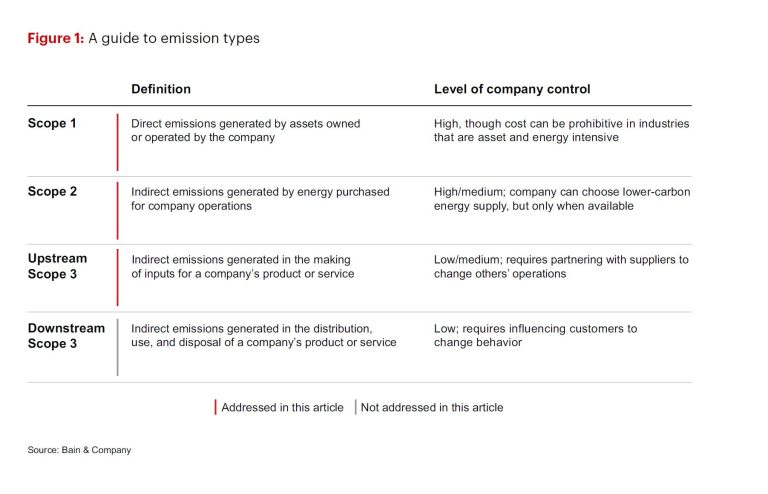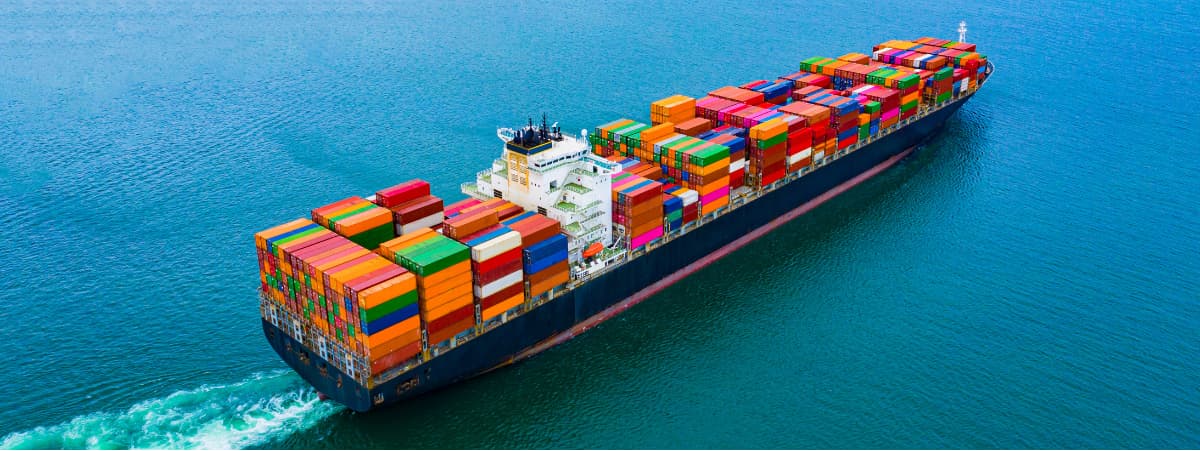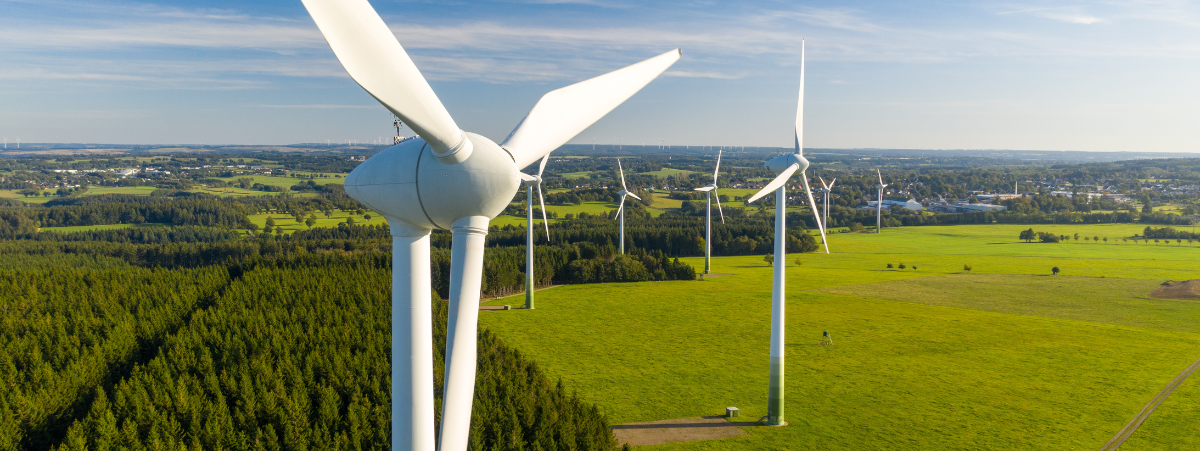New European Government legislation will support and accelerate the transition to low-carbon supply chains and transport.
The Challenges of Supply Chain Visibility
In order to meet ambitious decarbonization targets, companies need to prioritize emissions management with the same operational significance as enhancing efficiency and cutting costs. As we all know, this is much easier said than done. From supply chain visibility and transparency across intricate supply networks, to the investment and commitment by all parties involved. Global sustainability challenges in the transport industry are significant which is why supply chain decarbonization has been slow to catch up with other, more environmentally friendly industries.
Upstream and Downstream Supply Chain
In a recent report by Bain and Company, they found that as of October 2023, more than 6,000 companies representing close to 50 different sectors had set or committed to setting Science Based Targets for emissions reduction. That’s up from fewer than 500 companies in 2018. The report also stated that while each company and industry faces its own unique decarbonization challenges and opportunities, more than 20% of companies are not on trackto reach their reduction targets for the Scope 1 emissions generated by assets they own and operate or the Scope 2 emissions generated by purchased electricity and fuel. More than a third may not meet their planned reduction of upstream Scope 3 supplier emissions. That’s why the introduction of several European legislation changes coming into force this year will be critical in facilitating a more environmentally responsible and resilient global network.

1. Carbon Border Adjustment Mechanism
The CBAM was implemented in its transitional phase on October 1, 2023, with the initial reporting period for importers concluding on January 31, 2024.
Addressing the global challenge of climate change necessitates global solutions. With the EU elevating its climate ambitions, there arises a concern about potential ‘carbon leakage’ due to less stringent climate policies in many non-EU countries. Carbon leakage occurs when EU-based companies shift carbon-intensive production to regions with laxer climate policies or when more carbon-intensive imports replace EU products.
To tackle this issue, the EU has introduced the Carbon Border Adjustment Mechanism (CBAM), a pivotal tool that places a fair price on the carbon emissions associated with the production of carbon-intensive goods entering the EU. The CBAM aims to incentivize cleaner industrial production in non-EU countries. The gradual implementation of the CBAM aligns with the phasing out of free allowances under the EU Emissions Trading System (ETS) to support the decarbonization of EU industry.
Initially applying to specific goods like cement, iron and steel, aluminum, fertilizers, electricity, and hydrogen, the CBAM will eventually encompass over 50% of emissions in ETS-covered sectors when fully phased in. The transitional period acts as a pilot phase to gather valuable insights and refine the methodology for the definitive period, involving stakeholders such as importers, producers, and authorities in the learning process.
2. Council Of The European Union Adopts ReFuelEU Regulations
The objective is to boost both the demand for and supply of sustainable aviation fuel (SAF) within the European Union.
On October 9, the Council of the European Union officially endorsed regulations pertaining to the ReFuelEU initiative. This recently enacted legislation is designed to enhance both the demand and supply of sustainable aviation fuel (SAF) within the European Union. The initiative’s development has spanned over a year, with Members of the European Parliament (MEPs) adopting draft rules for ReFuelEU in July 2022. A political consensus on the proposal was achieved by the European Parliament in April 2023, followed by MEPs approving the ReFuelEU regulations on September 13.
Following the formal adoption of the ReFuelEU initiative by the Council of the European Union, the newly approved regulations are poised to be published in the EU’s official journal in the upcoming weeks. These regulations will come into force on the twentieth day post-publication, initiating on January 1, 2024.
A key component of the Fit for 55 package, ReFuelEU aligns with the European Union’s overarching objective to curtail greenhouse gas (GHG) emissions by a minimum of 55 percent by 2030, relative to a 1990 baseline, and attain net-zero emissions by 2050.
Under the newly established ReFuelEU aviation rules, EU airports and fuel suppliers are mandated to ensure that a minimum of 2 percent of aviation fuels are “green” by 2025. This requirement escalates to 6 percent in 2030, 20 percent in 2035, 34 percent in 2040, 42 percent in 2045, and 70 percent in 2050. Additionally, the rules stipulate that a proportion of the fuel mix must comprise synthetic fuels, such as e-kerosene, with the synthetic fuel requirement set at 1.2 percent in 2030, 2 percent in 2032, 5 percent in 2035, progressively reaching 35 percent in 2050.

3. The EU extends its cap-and-trade Emissions Trading System (EU ETS) to regulate CO2 from large ships of any flag entering its ports.
While playing a vital role in the EU economy and being among the most energy-efficient transportation modes, maritime transport constitutes a substantial and escalating contributor to greenhouse gas emissions. In 2018, global shipping emissions reached 1,076 million tonnes of CO2, accounting for approximately 2.9% of human-caused global emissions.
Projections indicate a potential surge of up to 130% in these emissions by 2050 compared to 2008 levels, posing a threat to the objectives of the Paris Agreement—a global initiative aiming to prevent dangerous climate change by limiting global warming to well below 2°C and striving for 1.5°C.
At the EU level, maritime transport contributed 3 to 4% of the EU’s total CO2 emissions in 2021, amounting to over 124 million tonnes of CO2. Recognizing the need for significant reductions in greenhouse gas emissions from international shipping, the International Maritime Organisation (IMO) took a noteworthy step in July 2023 by committing to new targets for GHG emissions reductions. They also pledged to develop and adopt a set of measures in 2025 to achieve these reduction targets.
To ensure that maritime transport aligns with Europe’s goal of climate neutrality by 2050, the EU has implemented crucial measures. Beginning in January 2024, the EU’s Emissions Trading System (EU ETS) will extend its coverage to include CO2 emissions from all large ships (5,000 gross tonnage and above) entering EU ports, irrespective of the country they belong to.
Getting ahead of Carbon Regulators
Listening to the concerns of consumers regarding emissions reduction is key considering the growing global emphasis on sustainability. A staggering 64% of consumers worldwide express significant worry about sustainability, and this sentiment is on the rise, particularly in response to increasingly frequent extreme weather events. When organizations proactively adopt sustainable practices and set decarbonization goals, businesses can align themselves with consumer values, enhance brand reputation, and build brand loyalty in a market increasingly prioritizing eco-friendly choices. Getting ahead of regulators is a savvy move for companies. Government policies are increasingly shaping consumer behavior, and businesses that anticipate and actively contribute to regulatory changes can position themselves as industry leaders. As global warming prompts bolder government interventions, companies with foresight will not only comply with regulations but also shape them, staying ahead of the curve and gaining a competitive edge in the market.








